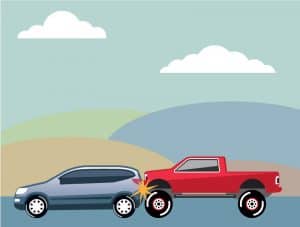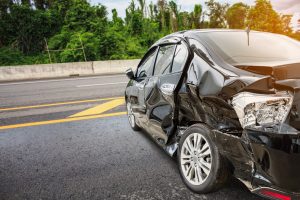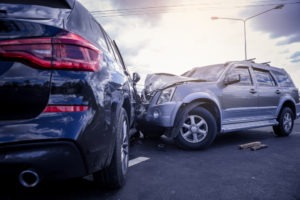
Pittsburgh Whiplash Neck Injury Attorneys Here to Help You
The Mayo Clinic reports that whiplash is a neck injury commonly caused by car accidents. The neck is vulnerable to damage when it is jolted suddenly back and forth upon impact in a car crash. Symptoms can present within a few days of the collision, ranging from mild headaches to chronic pain and nerve damage. Most people recover from whiplash within a few weeks. However, others can develop life-long complications.
If you or a loved one suffered a whiplash injury from a car accident caused by another person’s negligent driving, you could be entitled to compensation. A quick and effective way to determine if you qualify is by taking advantage of a free case evaluation offered by one of our Pittsburgh car accident lawyers.
A Pittsburgh whiplash accident lawyer at Berger and Green is ready to help you understand your legal options if a negligent driver hit you. Contact us for a free case review with a Pittsburgh personal injury lawyer team representative at (412) 661-1400 today.
40+ years of experience from strong, knowledgeable, compassionate attorneys.
Start A Free EvaluationHow a Negligent Driver May Have Caused Your Accident
Negligence occurs when a driver fails to use reasonable care when operating a vehicle, which can increase the risk of accidents and cause personal injuries and damage to one or more vehicles. Your accident may have been due to:
Distracted Driving
A motorist can become distracted when their attention is diverted while driving, like passengers in the vehicle, events outside of the vehicle, use of in-car technologies, texting, eating, drinking, or smoking while driving. The risk of an accident increases when a driver’s attention is not on the road.
Driving While Fatigued
As well as the obvious risk of falling asleep at the wheel, fatigued drivers have slower reaction times and suffer from reduced attention, awareness, and ability to react to potential hazards. Driving while overtired can result in a rear-end crash and whiplash injuries.
Driving Under the Influence (DUI)
Driving under the influence is a crime. If someone operates a motor vehicle while impaired by alcohol or drugs to a level that renders the driver incapable of operating the vehicle safely, the chances of a collision are significantly increased.
Proving liability is an integral part of the claims process as it can affect the amount of compensation you could receive if the at-fault party denies responsibility.
A Pittsburgh whiplash accident lawyer can help you prove negligence by gathering the evidence necessary to support your claim. This could include witness statements, police reports, CCTV footage, medical reports, or expert testimony from medical professionals. Reach out to Berger and Green today at (412) 661-1400, so we can tell you more about how we plan to prove your case.
We know you’re hurting. We can help. Free case evaluations, home and hospital visits.
Contact Us Now For HelpSigns of a Whiplash Injury
Whiplash can be extremely painful and interfere with the way you live your life. It can also be expensive to diagnose and treat, especially if you are forced to miss time at work while you recover. If someone else was responsible for your injuries in a car accident, you might not have to deal with the costs and consequences on your own. You may face:
- Neck pain
- Neck stiffness
- Headaches
- Pain and muscle spasms in shoulders and arms
- Weakness in arms and legs
After a car accident, it is essential to seek medical attention. Even if you feel unharmed initially, you need to do so—as many injuries do not show up straight away. Make your health a priority and see your doctor, the sooner your injuries are detected and treated, the better. Having a record of your injuries is also important evidence if you decide to pursue legal action with the help of a lawyer later on.
You need an attorney with the experience and dedication to give your case the care it deserves.
Start A Free EvaluationClaiming Compensation for a Whiplash Injury
As Pennsylvania is a choice no-fault state, the coverage you have on your auto insurance could affect the type of compensation available to you.
Limited coverage (limited tort) allows you to recover damages such as lost wages and medical bills—regardless of who is to blame for the accident—up to the limits on your policy. If your injuries exceed policy amounts and the other driver is at fault, you could file a third-party claim against his or her insurance—depending on the severity of your injuries.
A Pittsburgh whiplash accident lawyer will be able to examine your case, determine the most suitable course of legal action for your circumstances, and build a robust testimony by:
- Starting an investigation into the cause of the accident
- Identifying liable parties
- Gathering evidence to support your case
- Proving negligence
- Assessing the value of your claim
- Negotiating with the at-fault party’s insurance company
- Reviewing settlement offers
- Representing you in court if a settlement cannot be agreed upon
The statute of limitations for Pennsylvania is two years under PA § 5524, after which you will likely be unable to seek compensation. Seeking legal advice promptly also allows your lawyer to gather and preserve the evidence needed to support your claim.
If you have any questions or are unsure about how to proceed with your claim, we are here to help.
We can address all the legal hurdles that may be keeping you from getting a fair settlement.
Speak To An Attorney TodayGet Started for Free with a No-Obligation Consultation
We understand how you are hurting right now and how much a whiplash injury can affect your well-being on a physical, emotional, and financial level. Because of this, we will protect your rights in pursuit of fair compensation to help you move on with your life.
The responsive team at Berger and Green can help you determine your legal options in a no-obligation consultation. We understand how a car accident can impact your finances. If we represent you, there will be no fees to pay until we successfully recover money for you. A member of our dedicated team is ready to answer your questions at (412) 661-1400 today.










